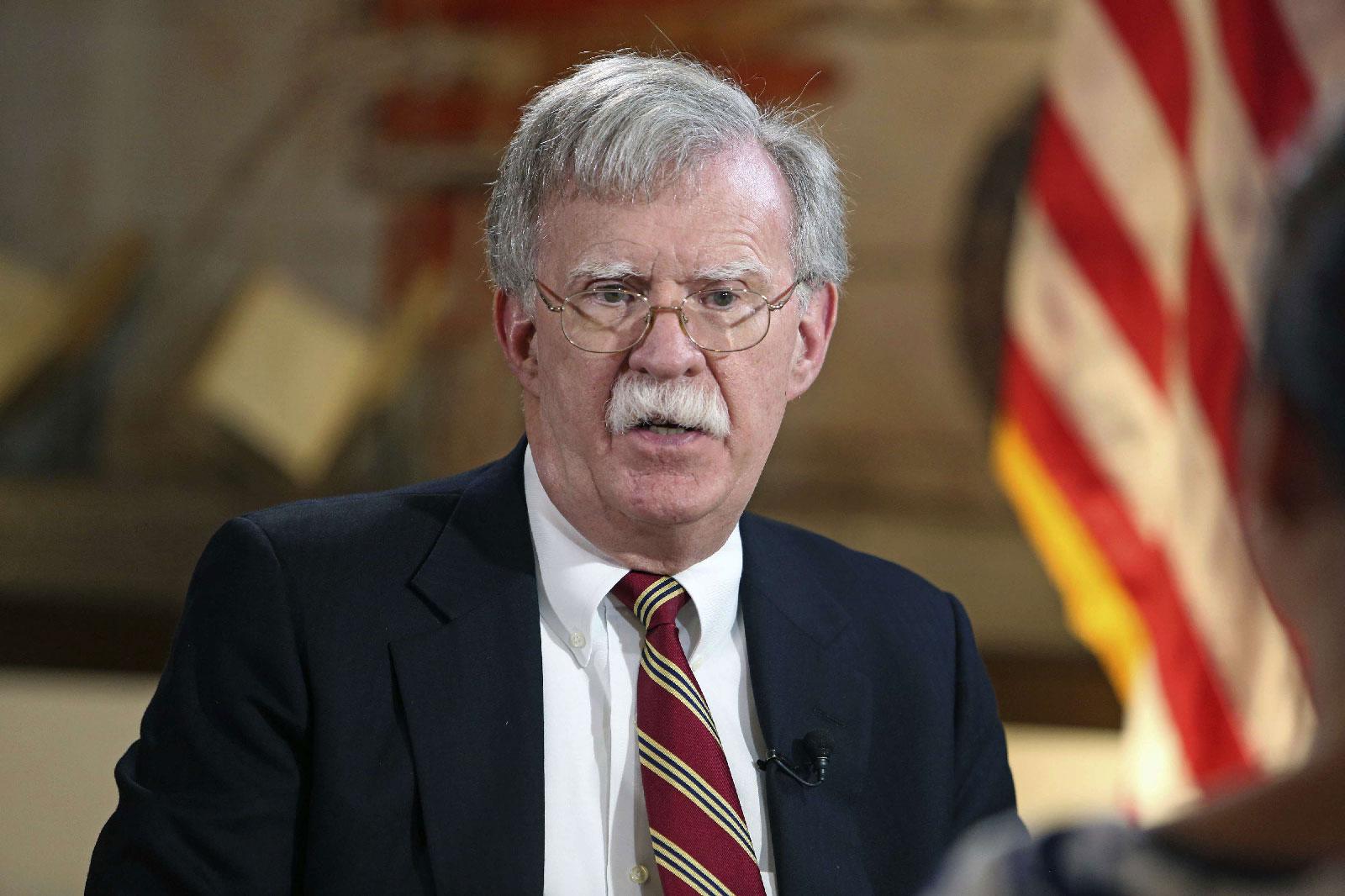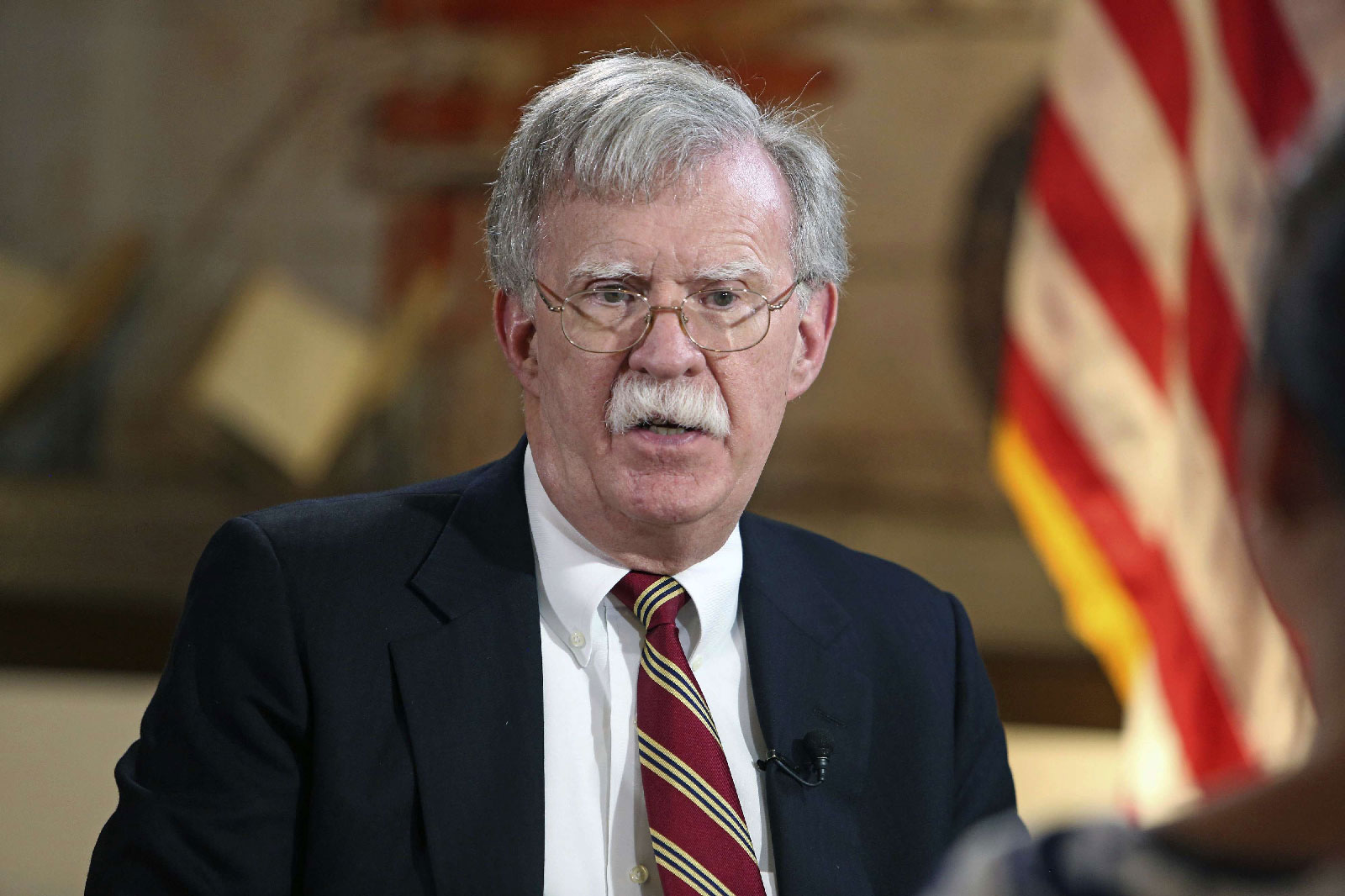Bolton says US will 'squeeze' Iran 'until the pips squeak'
SINGAPORE - The United States will step up enforcement of sanctions on Iran, national security adviser John Bolton said on Tuesday, as Tehran tries to find ways to evade the restrictions in oil trade and in banking.
Bolton was speaking to reporters in Singapore on the sidelines of meetings this week between the ten-member Association of Southeast Asian Nations (ASEAN) and external partners, including the United States and China.
"The objective has been from the beginning to get oil exports from Iran down to zero," Bolton said.
"It is our intention to squeeze them very hard. As the British say: 'Squeeze them until the pips squeak'."
"We are also going to significantly increase the enforcement of sanctions."
The United States announced reinstatement of sanctions earlier this month as the Trump administration tries to force Iran to curb its nuclear and missile programs as well as its support for proxy forces in Yemen, Syria, Lebanon and others in the Middle East.
Eight importing countries have been given temporary exemptions by the United States to keep buying Iranian oil when it reimposed sanctions, prompting Iranian President Hassan Rouhani to say the Washington would not be able to cut Iran's oil exports to zero.
Washington has repeatedly said that humanitarian needs, food and medicine are exempt from the sanctions and the Iranian people are not the targets.
But Iran says the sanctions are inhumane and go against international law.
Humanitarian needs
The sanctions on banks have meant that few if any international lenders are ready to facilitate transactions for fear of upsetting the United States, even for humanitarian purposes such as medical supplies.
Coupled with a plunge in Iran's national currency, this has lead to severe shortages and soaring black market prices for drugs from abroad needed to treat illnesses like cancer and even simple anaesthetics required for surgery.
The US measures have been opposed by other parties to the deal aimed at ending Iran's nuclear drive -- Britain, France, Germany, China and Russia -- who have vowed to keep the accord alive.
"There's no doubt Iran has already started to try and find ways to evade the sanctions both on oil in particular and financial markets," Bolton added.
UN inspectors say Iran is abiding by the agreement.
But Bolton said "most of the countries of Europe have passed through denial and anger and many of them are already at acceptance that we're out of the deal.
"Others are getting to that point."
In the face of widespread opposition to the sanctions, Washington issued exemptions to eight countries to its ban on buying oil from major producer Iran.
Washington is demanding that Tehran end policies rooted in the 1979 Islamist revolution, including its support for regional proxies such as the Lebanese militia Hezbollah and its development of missiles.
The International Monetary Fund has forecast that the sanctions will cause Iran's economy to contract 1.5 percent this year and 3.6 percent next year.
Regional rivals
The most vocal support for the US position has come from Iran's regional rivals, notably Saudi Arabia and Israel.
The Trump administration has emphasised America's important commercial, strategic and national security relationships with Saudi Arabia as the kingdom continues to face an international uproar over the murder of journalist Jamal Khashoggi.
Bolton told the reporters in Singapore that the United States will let an investigation by Saudi Arabia's public prosecutor into the killing of Khashoggi run through.
Khashoggi, who was a critic of Saudi Crown Prince Mohammed bin Salman, was killed last month at the kingdom's Istanbul consulate by a team sent from Riyadh.
The kingdom's public prosecutor Saud al-Mojeb later said Khashoggi was killed in a premeditated attack, but his body has not been found.
Bolton weighed in on reports of audio recordings linked to the murder, saying they do not implicate bin Salman.
Turkey has previously said it shared recordings linked to the murder of Khashoggi with officials in Riyadh, Washington and other capitals.
After repeated denials, Saudi Arabia finally admitted the 59-year-old had been murdered at the mission in a "rogue" operation.
Bolton was asked whether it was right to say the audio contained nothing that implicated the crown prince.
"I haven't listened to the tape myself but in the assessment of those who have listened to it that's right," he said.
Intense speculation
Khashoggi's brazen murder has caused intense speculation over what, if anything, Crown Prince Salman might have known about the operation.
Turkish President Recep Tayyip Erdogan has said the order to murder Khashoggi came from "the highest levels" of the Saudi government and pointedly failed to absolve Crown Prince Salman of responsibility.
The New York Times reported that a member of the team at the consulate had told a superior by phone to "tell your boss", suspected to be the crown prince, that the operation had been accomplished.
The Trump administration embraced the young prince as a reform-minded ally, but the murder of Khashoggi -- a US resident -- has soured that narrative.
Bolton emphasised that Trump has demanded a full investigation from the Saudis and for those responsible to be held accountable.
"The president has made it very clear that he expects we're going to get the truth from the Saudis -- and the king and the crown prince, in the conversations they've had with the president, have committed to that," he said.


